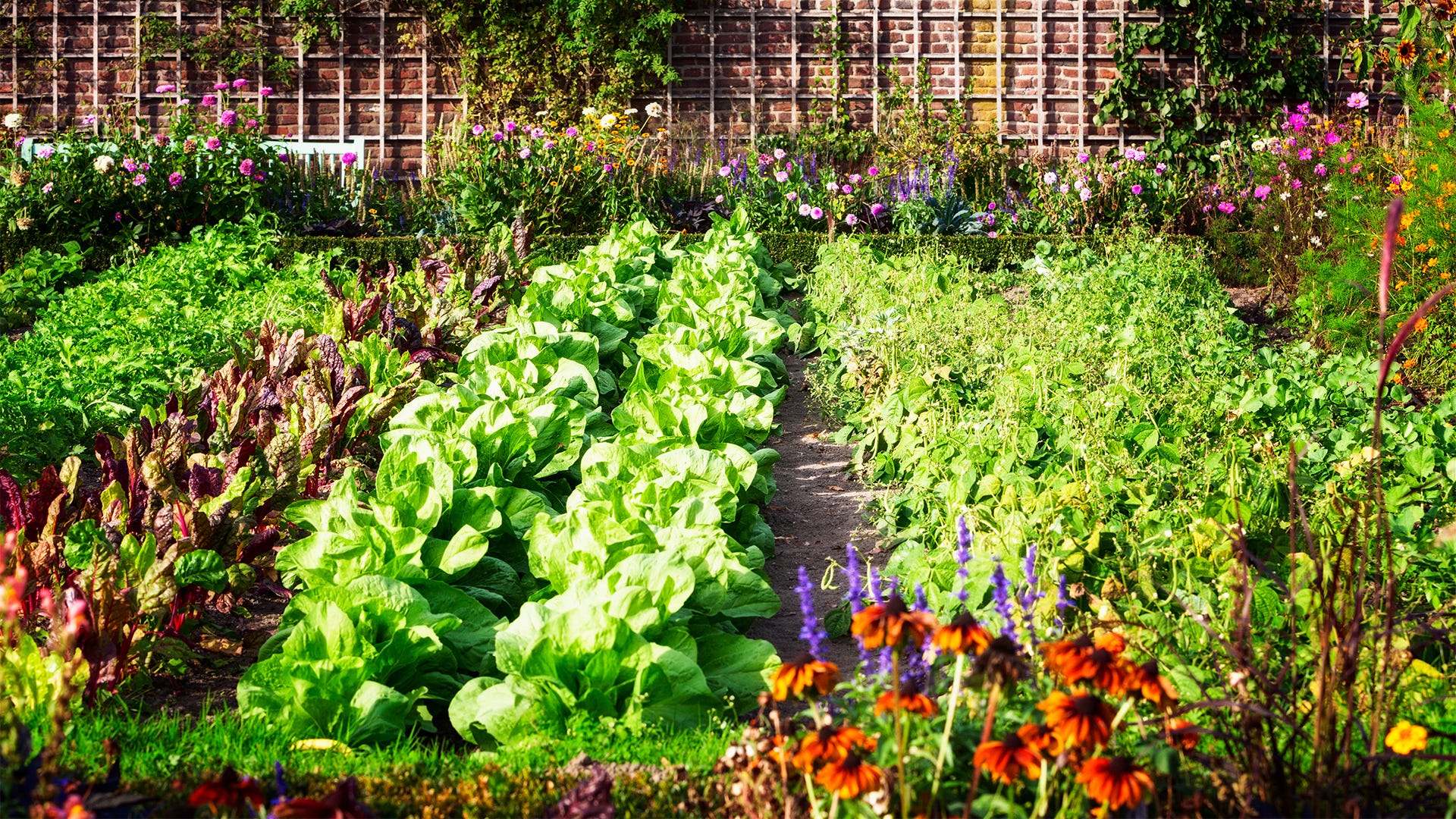
In the world of pesticides and repellents, it’s understandable that you might assume the words “organic” and “natural” are interchangeable. In fact, only some manufacturers can use these terms, and organic gardeners most often will want to seek out pest control products that say "for use with organic gardening" and are registered by the Environmental Protection Agency (EPA).
For organic home gardeners, using pesticides or repellents can be confusing enough. Not knowing whether “organic” or “natural” applies to their ideals makes it difficult for an organic gardener to select the right products to apply to their plants. The short answer is this: There is no EPA definition of “natural” or “all-natural," and the agency forbids those terms from appearing with the products it registers for use.
These marketing terms, however, can be used food manufacturers and growers who don't have to submit to EPA registration. It's important to note the EPA is responsible for protecting the environment and does not directly monitor food quality. As a result, food producers, but not insecticide manufacturers, can use "natural" terminology on their products. As for “organic"? It has these set definitions.
What Defines Organic?
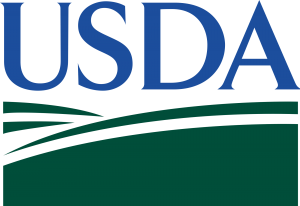
According to government regulations, food items labeled “organic” have to earn that designation. They do so by being produced using products, such as pesticides, that are labeled “for use in organic production," another carefully monitored designation.
The U.S. Department of Agriculture says a food product may be labeled organic if it:
- Did not using genetic engineering, ionizing radiation or sewage sludge in its production.
- Only used approved products from the National List to assist in its production.
- Has had production overseen by an agent of the USDA’S National Organic Program.
With this strict definition in place, the Organic Materials Review Institute (OMRI) was created. It assists and monitors manufacturers as they develop products that help food producers meet the NOP organic food standards. This third-party agency reviews information about how a product, such as a pesticide, was developed, and only those that meet the standards can carry the coveted “OMRI Listed®” seal (we’ll talk more about that below).
Ultimately, OMRI works to take the confusion out of buying products for use in organic gardening. Their goal is to inform consumers about product labels and how to recognize certified products, so they can make an informed decision and buy products with confidence.
National Organic Program (NOP)
The National Organic Program (NOP) has developed the national standards for labeling organic food products with the “USDA Organic” seal. Administered by the USDA, the NOP monitors all aspects of production, processing, delivery and retail sale to ensure these goods continue to meet the established definition of “organic.”
Further, under the National Organic Program, manufacturers who wish to use the “for organic production” label on their gardening products must use materials that are on the NOP’s list of approved organic materials.
Safer® Brand, for example, offers a wide array of products that are compliant for use in organic gardening including the extremely popular End All® Insect Killer, which kills up to 45 different types of pests. These products were developed to meet OMRI’s standards and earn their place on the OMRI list. Understanding labeling of gardening products can help you make the right selections to keep your garden organic.
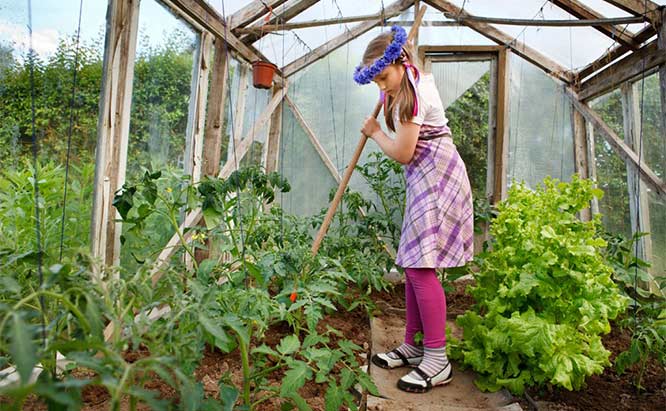
Organic Materials Review Institute (OMRI)
The Organic Materials Review Institute is an independent, national, nonprofit organization that determines which products are allowed for use in organic production. In turn, those products allow farmers to grow food that can eventually earn the “USDA Organic” seal, a logo that consumers know to seek out when searching for organic products.
To meet those standards, OMRI reviews input products submitted by manufacturers. What’s an “input” product? Those are the products used to help grow crops or, in the case of livestock, to help the animal grow. For plants, an input product could be a bug spray, fertilizer or other nutrients.
Organic growers, manufacturers and suppliers can rest assured that their production, handling or processing efforts still meet USDA standards by using input products with the OMRI Listed® seal. The seal was established to help producers recognize input products that have been approved for use in organic production. To make decisions on suitability of input products, OMRI has assembled a national board of experts that review the ingredients contained in a product, the sources of those ingredients and how they are processed.
OMRI Listed Seal
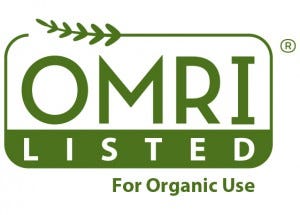
Input products that clear the review process by OMRI® are then permitted to use the OMRI Listed® seal on their packaging and marketing campaigns. This seal indicates the reviewed product has been added to the OMRI® Products List.
A lettuce farm, for example, may use products from OMRI’s list (along with NOP approved growing methods) in order to qualify its crop as an organic product and use the “USDA Organic” label on its own packaging and advertising.
Organic gardeners, therefore, can rest assured they are staying true to their organic ideals by only using OMRI Listed® products in their home gardens.
What Do "Natural" and "All-Natural" Mean on Food Labels?
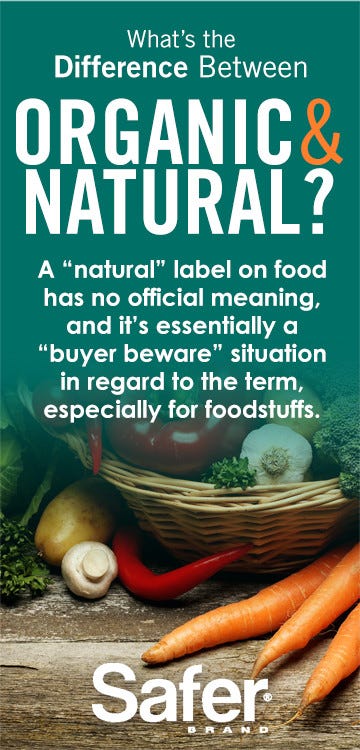
The U.S. government has not officially defined the terms “natural” or “all-natural” in regard to foodstuffs since these terms have a certain vagueness to them. A hot dog, for example, could be labeled “natural” because all of its ingredients came from nature, though few would suggest most hot dogs could be considered health foods.
Instead, most people agree that “natural,” “all-natural” and similar terms refer to food products that come directly from the Earth and have had little or no processing before sale.
Without taking a stance, the Food and Drug Administration (FDA) seems to indicate that it prefers “natural” products be those that do not contain added color, artificial flavoring or synthetic substances.
As mentioned above, the EPA has its own stance on the ‘Natural’ label (or any other designation, such as ‘All-Natural’ or ‘Naturally’). It does not allow the term to be used on the products it regulates, including pesticides, herbicides and fungicides. Like other government agencies, the EPA says the term ‘Natural’ cannot be properly defined, and they don’t want the term to confuse consumers, who could assume such products are safe for use in gardening.
So with all that in mind, you should understand the “natural” label has no official meaning, and it’s essentially a “buyer beware” situation in regard to the term, especially for foodstuffs. Many food manufacturers can label their products as they see fit, which may or may not match a consumer’s view of “natural.” Manufacturers of EPA-regulated pesticides, however, aren’t allowed to use the term at all.
Are You Ready for Organic Gardening?
Now that you understand the differences between “organic” and “natural” phrasing and understand that an OMRI Listed® product can help you maintain your organic lifestyle, take a look at the full range of OMRI Listed® items available from Safer® Brand. Our goal is to help you make the most out of your organic garden, and that’s why we strive to bring these products to you!
If you would like to learn more about the organic gardening community, join Safer® Brand on Facebook for an ongoing exchange of ideas about the organic lifestyle. You can also subscribe to our E-Newsletter for more gardening articles and links to the products you need.



